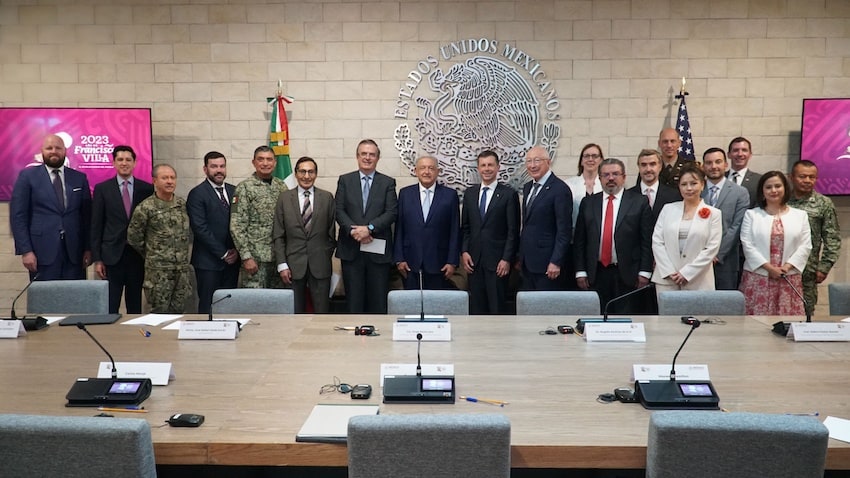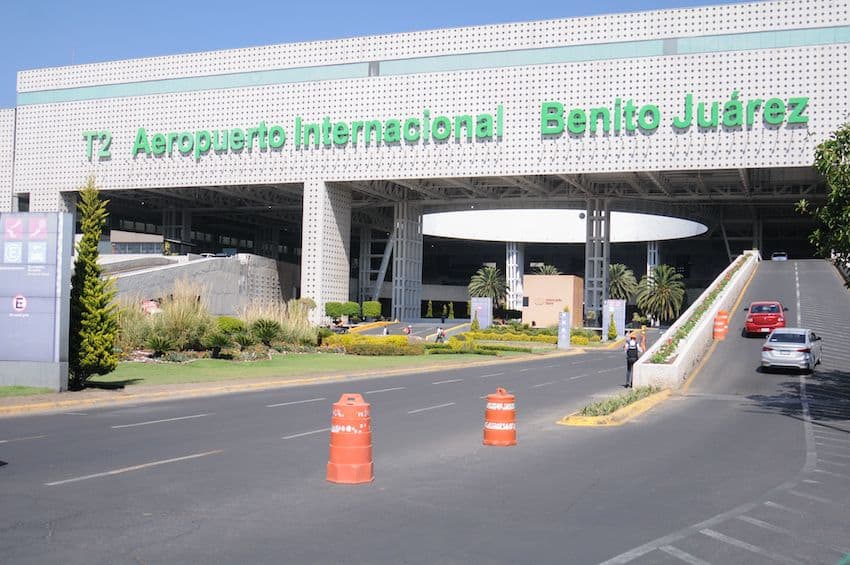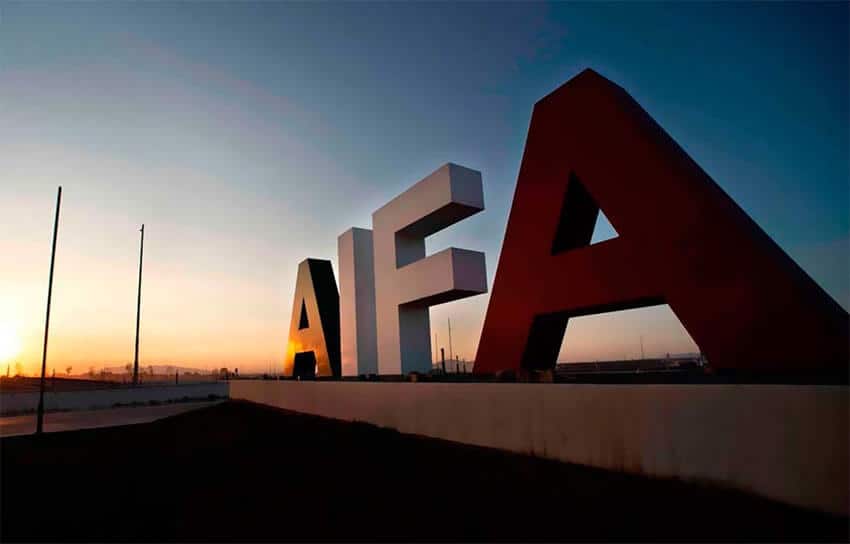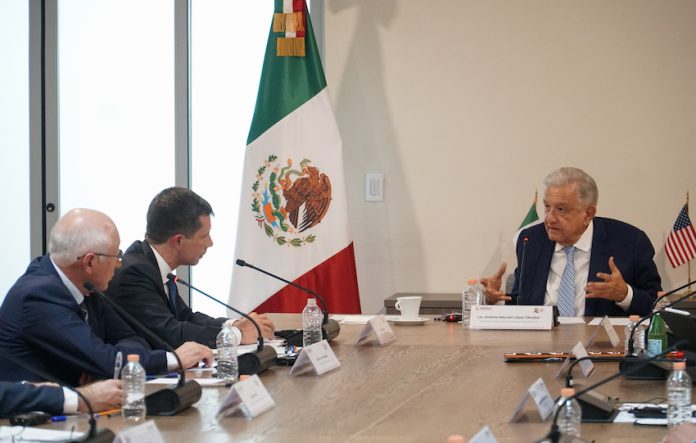A day after meeting with United States Secretary of Transportation Pete Buttigieg, President López Obrador said Thursday that he expects “good news” with regard to Mexico’s desired recovery of its top-tier aviation safety rating with U.S. authorities.
In May 2021, the United States Federal Aviation Administration (FAA) announced that it had downgraded Mexico’s aviation safety rating from Category 1 to Category 2 after finding that it wasn’t meeting standards set by the International Civil Aviation Organization, a specialized agency of the United Nations.

The downgrade prevents Mexican airlines from adding new routes to the United States, a situation seen as a significant hindrance to the success of the Felipe Ángeles International Airport (AIFA), which opened in March 2022.
López Obrador and other high-ranking Mexican officials met with Buttigieg at AIFA on Wednesday, after the transportation secretary flew into the new army-built airport. United States Ambassador to Mexico Ken Salazar also attended the talks.
Speaking at his morning news conference on Thursday, López Obrador said that U.S. authorities are “reviewing the entire process” that has been carried out to assess Mexico’s suitability for a Category 1 rating.
“Everything that they demanded has been fulfilled. … there is one more step to be taken in the United States. The transportation secretary is a very respectful person, attentive, and I’m sure we’re going to have good news,” he said.

“I don’t want to set deadlines because they’re fatal. You’ll say to me, ‘What happened? Nothing yet?’ It depends on the paperwork, and there in [the United States], there are also rheumatic elephants you have to push,” López Obrador said, employing a term he frequently uses to describe slow-moving bureaucracy.
The FAA is not the only entity that has raised questions about aviation safety in Mexico.
The International Federation of Air Line Pilots’ Associations said in May 2022 that it appeared that air traffic controllers at the Mexico City International Airport (AICM) had received “little training and support” on directing flights operating in the new airspace configuration precipitated by the opening of AIFA north of the capital.
The National Air Traffic Controllers Union subsequently acknowledged that its members lacked training. Some currently working at Mexican airports were approved for entry to training courses in 2019 despite failing admission tests, a 2021 audit found.
That revelation, published by the Reforma newspaper last year, came shortly after two dangerous incidents at AICM were caused by air traffic control errors.
Pilots of a Volaris plane narrowly averted a disaster on May 7, 2022, after they were cleared to land on a runway occupied by another aircraft. A similar incident occurred four days later.
The FAA concluded a review of Mexico’s aviation safety last week, according to Mexico’s Ministry of Infrastructure, Communications and Transport (SICT), which said that a final report on the results of the audit would be issued in the coming weeks.
The ministry said that Mexican officials responded to 316 questions from U.S. experts on a range of topics, including air safety and related legislation.

The news agency Reuters reported that in the two years since Mexico lost its top-tier safety rating, “the country has revamped its aviation standards, replacing officials and most recently overhauling its civil aviation law.”
Although López Obrador said before his meeting with Buttigieg that discussions would focus on the recovery of Mexico’s Category 1 rating, a joint statement issued by the United States Department of Transportation and SICT on Thursday didn’t specifically mention that issue.
However, it did say that the Mexican and U.S. governments are both “committed to the successful development of AIFA in ways that will bolster the U.S.-Mexico air transportation relationship.”
The statement said that “strong transportation links between Mexico and the United States are essential to our two countries and our economies” and that López Obrador and Buttigieg “discussed approaches to further strengthen these links, deepen our people-to-people ties, and support continued integration of North American supply chains.”

“… We discussed further steps our governments can take to promote the expansion of commercial operations at AIFA, including the flexibility and support that will help U.S. carriers to successfully launch operations there,” it added.
On social media, López Obrador said that he and Buttigieg spoke about the transfer of cargo airlines to AIFA — the government published a decree in February indefinitely suspending cargo operations at AICM — as well as the recovery of the Category 1 rating.
The U.S. transportation secretary responded to the president on Twitter, writing that they shared a “good discussion on steps our governments can take to support operations at Felipe Ángeles International Airport and to help U.S. carriers succeed there in ways that strengthen supply chains for both nations.”
Mexico News Daily
